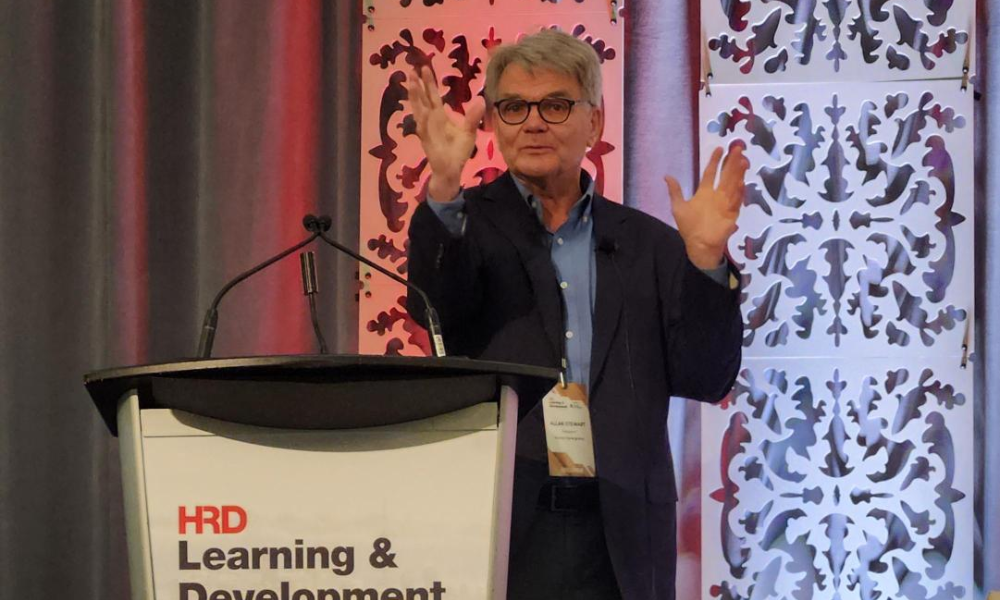Worringly, the majority of employees have never been taught how to work in a more authenitc fashion
.jpg)
So many of us overlook the direct relationship between our body and our mind, according to Yu Dan Shi, author of the book, Come Alive – Live a Life with More Meaning and Joy.
The truth is that when our body isn’t performing well, it’s unlikely we can feel well at an emotional level, added Yu Dan.
Yu Dan cited 2017 research from Australian National University which shows that working longer than 39 hours a week puts your health at risk if you also spend more than 28 hours a week in caring or domestic work.
These people will more likely experience mental illness and symptoms of distress, such as feeling nervous, anxious or down.
“Given many professionals and business owners work more than 40 hours a week, what this tells us is working more is not the answer; we need to work smarter,” said Yu Dan.
“Work-life balance is not a new topic. However, what we seldom explore is the fact that it’s not easy for people to achieve work-life balance – unless they have been taught how.
“We are creatures of habit. We can’t change the way we work or live overnight. It’s a skill.”
The reality is the majority of the workforce has never been taught how to work in a healthier way or how to perform at an optimal level, according to Yu Dan. Most of us have only ever been taught how to work harder.
“I was so burnt out in 2008 that it took an emergency operation to force me to look at things differently. My doctor explicitly told me that my life-threatening illness was the result of stress,” she said.
“To the outside world, I was a positive, strong, resilient mother and leader, but I suffered internally and lacked the tools to manage the situation. I see this happen over and over through my coaching practice, how talented individuals find difficult to cope due to unhealthy working habits.”
According to Yu Dan, there is a limit to how much and how hard we can work. Like a fuel tank, our energy needs to be topped up, or they will run out.
When people work long hours, there is not enough time for rest and renewal. In reality, the faster we know how to recover and renew ourselves, the faster and more consistently we reach the optimal performance. Elite sports people have mastered this approach.
Yu Dan added that over the past 10 years, sleep has become the secret weapon of more and more Olympic competitors. Dr Mark Rosekind, who has helped gold medalists optimise their sleep, explains in an interview with the Huffington Post that science has shown our performance will suffer if we don’t have enough rest.
“Once we understand slowing down creates better performance, I have found people are much more willing to improve how they work and live,” she said.
Yu Dan outlined four daily habits that can make a huge difference to energy, wellbeing and happiness:
Stop reacting
Many people jump into the reacting mode from the moment they get up. If most of our hours are spent reacting, we are likely to feel exhausted and out of control. I have often suggested my clients begin their day with the things they want to achieve first, instead of simply reacting.
Learn to rest
Have you ever felt that two hours of good work is better than 20 hours of poor work? It’s likely that you were rested to do the work. If you feel less motivated to do something, it might be an indication that your energy is running low. Instead of blaming yourself for lacking perseverance, take a break.
Be in nature
Research shows that being in nature refreshes us and increases our cognitive performance. It can be as simple as including a daily walk in your routine. I have often suggested my clients have meetings outside their office, whether in an open café or turn a sitting meeting into a walking meeting.
Do something fun
Research has shown that having fun reduces stress, keeps us energetic, and increases more job satisfaction. When I play with my dog silly at the park, I always walk home feeling much more energetic and happier. On the surface, some activities seem non-productive, when in fact, they provide vital recovery time.
We all want to succeed. But we don’t have to sacrifice our happiness and wellbeing in the process. Once people learn to work and live in a more optimal way, not only they become happier, but also they sustain success for much longer.








